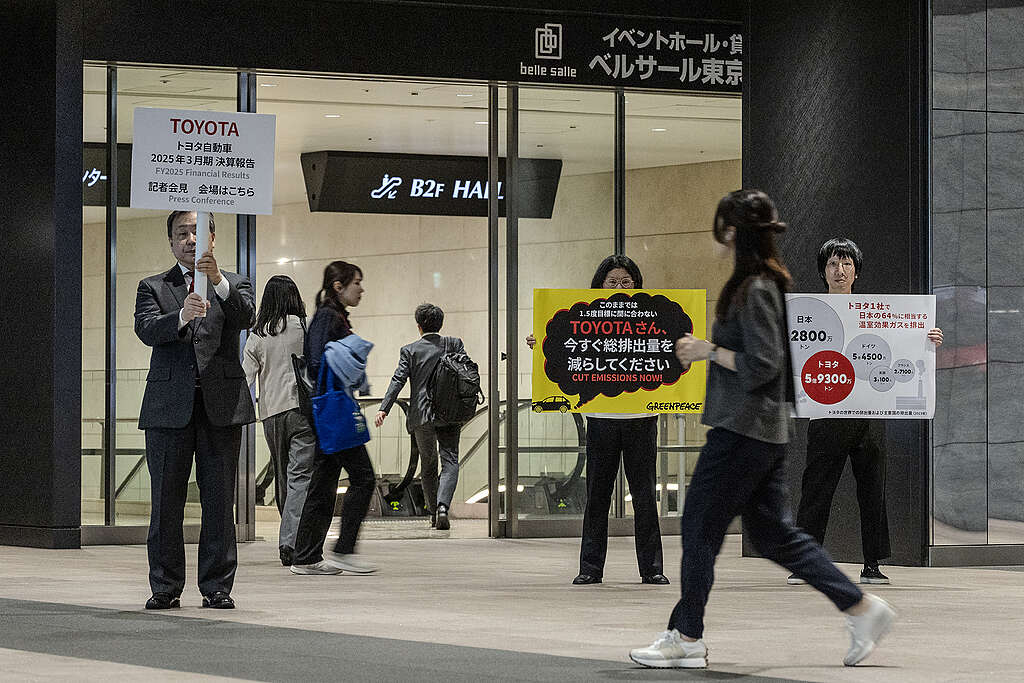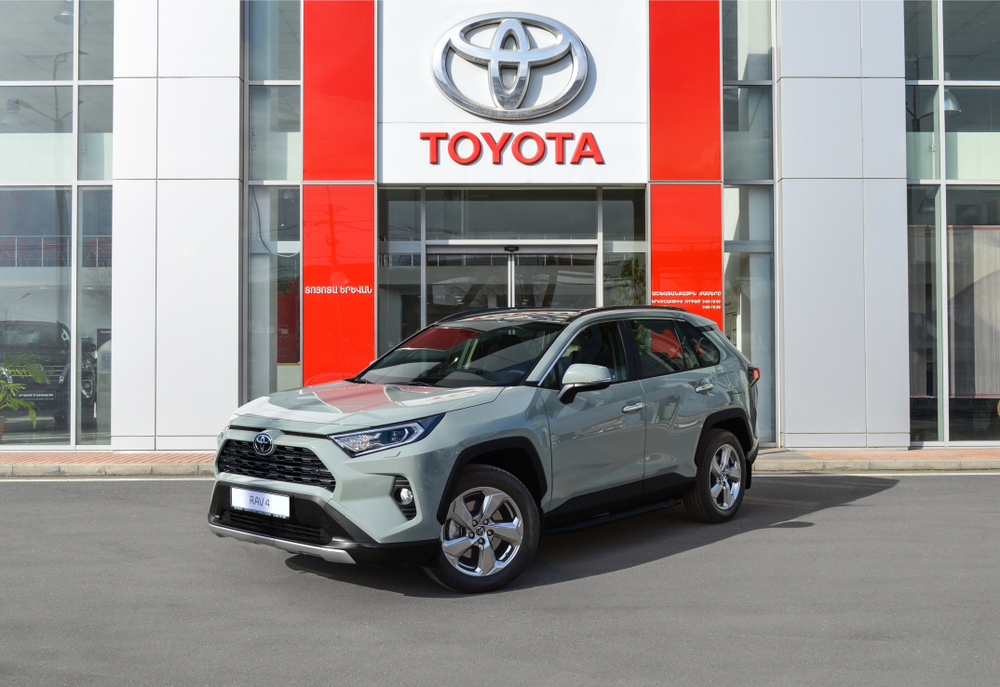TOKYO – Toyota Motor Corp. announced its financial results for FY2025 today at Bellesalle Tokyo Nihonbashi (Chuo-ku, Tokyo). Greenpeace Japan activists were present on-site and held up a banner that read, “Cut emissions now.”
Battery electric vehicles (BEVs) comprised just 1.4% of vehicles sold by Toyota in 2024 – one of the lowest percentages among major automakers. The vast majority of Toyota’s sales were combustion engine vehicles, including hybrids, which lock consumers into fossil fuel dependence.[1]

Mariko Shiohata, climate and energy campaigner at Greenpeace Japan, said:
“Toyota’s profits are overshadowed by the automaker’s cost to our environment and growing investor concerns about electrification. Toyota has been losing market share in key markets like China and Southeast Asia, where emerging automakers like BYD offer affordable electric vehicles.[2] To remain relevant, Toyota must speed up its shift toward electrification.
Toyota should not use the US tariffs as an excuse to delay its climate actions. Climate change continues to intensify regardless of tariffs, and EV-friendly legislation remains in effect in many countries, including in the US on both the federal and state levels. In addition, it is not clear that Toyota is more affected by the tariffs than any other major automaker. Using tariffs as an excuse for climate inaction simply distracts from Toyota’s slow electrification progress.
Toyota has not issued a global target for total emissions reduction, leaving its environmental impact unchecked.[3] In 2023, Toyota’s emissions exceeded those of Germany.[4] To prevent a further increase in emissions, it is critical that Toyota set an absolute target for emissions reduction.
Toyota has recently been investing in the development of biofuels to extend the life of internal combustion engine vehicles. However, biofuels are not only costly, but have also been shown to be harmful to ecosystems.[5] Instead of taking a risk on unproven technologies, Toyota should invest in decarbonization strategies that scientists agree are both effective and environmentally sound.
In 2024, the global average temperature increase surpassed 1.5 Celsius, and we are experiencing record heat waves, drought and storms.[6] Toyota’s profits come at the expense of the safety of millions of people in regions where natural disasters have been hitting hard. When we assess Toyota’s financial gains, it is essential to ask, who is really paying the price?
END
Notes:
[1] In April 2023, Toyota CEO Koji Sato announced that the company would produce 1.5 million battery electric vehicles by 2026. This figure was later reduced to 1 million in 2024, and then this year was further revised down to 800,000.
[2]https://www.bloomberg.com/graphics/2024-china-outshines-japan-cars-southeast-asia/
[3] Toyota Motor Corporation, Sustainability Data Book October 2024, p.49.
[4]https://www.iea.org/data-and-statistics/data-product/greenhouse-gas-emissions-from-energy-highlights
[5] https://royalsocietypublishing.org/doi/10.1098/rspa.2020.0351
[6] https://www.bbc.com/news/articles/cd7575x8yq5o
Media Contacts:
Natalia Emi Hirai, Communications Officer, Greenpeace Japan, +818065584446, [email protected]
Erin Newport, International Communications Officer, Greenpeace East Asia +886 958 026 791, [email protected]



